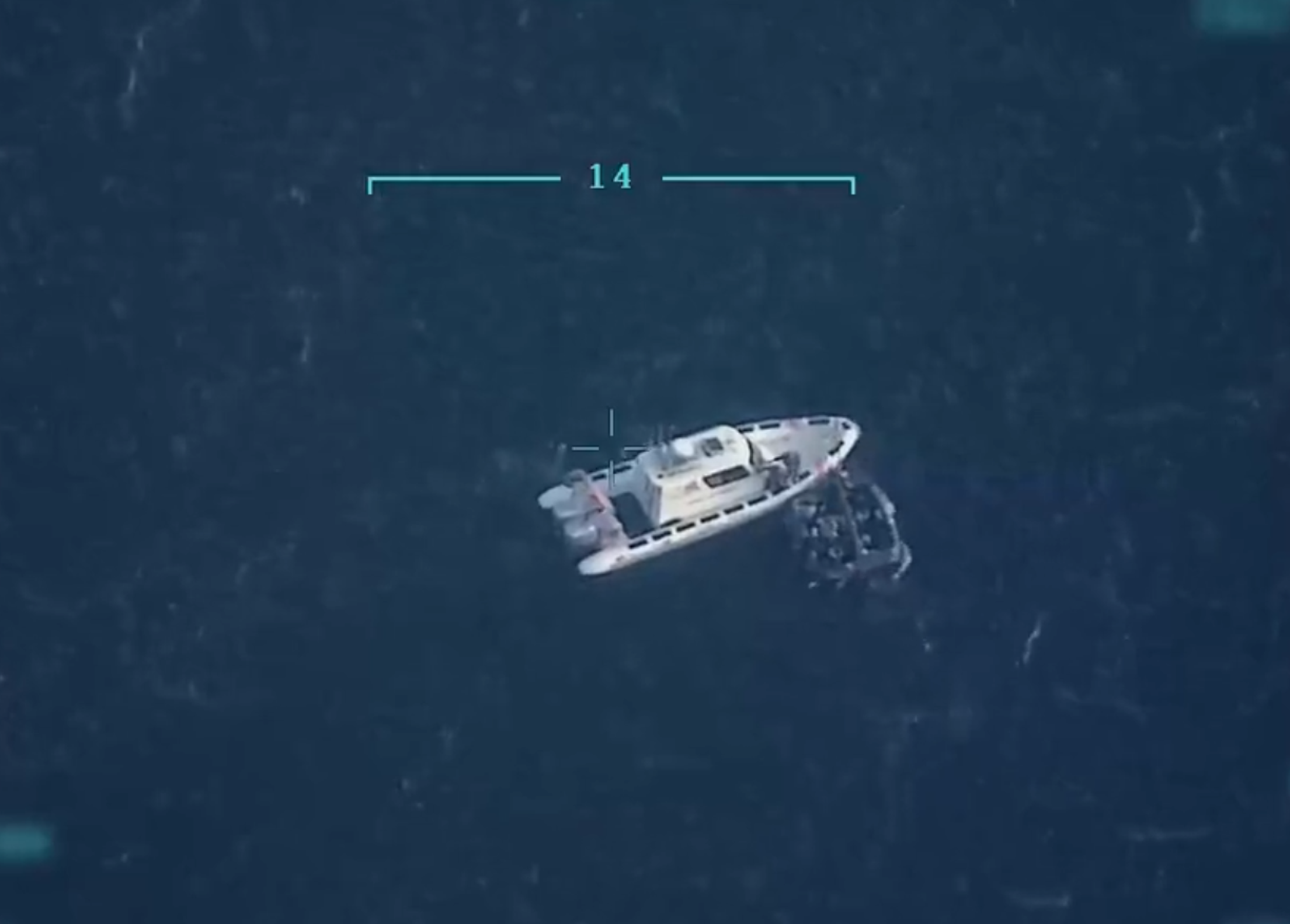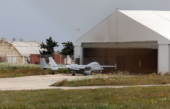Because of human rights violations, non-governmental organisations are demanding the withdrawal of Frontex from Greece. Their Fundamental Rights Officer, on the other hand, wants to increase the number of EU border guards deployed in the event of violations.
Frontex should withdraw from Greece, demanded a coalition of seven non-governmental organisations operating on the island of Samos last summer. The Warsaw-based EU border agency was not fulfilling its obligation to monitor human rights violations in Greece. The organisations presented evidence of this several times. International media also proved that the coast guard abandoned people at sea after they had already arrived on Samos or other Greek islands. Hundreds of times, the Turkish Coast Guard has also posted video evidence of this online.
The possible withdrawal from a host state is stipulated in Article 46 of the Frontex Regulation. Operations can be terminated “if the conditions to conduct those activities are no longer fulfilled”. The decision on this is up to the director of the agency. The regulation remains vague about the possible reasons. The number of registered complaints, internal reports on “serious incidents” or reports from “relevant international organisations” are considered as benchmarks.
The Fundamental Rights Officer (FRO) at Frontex does not think much of such a withdrawal. Jonas Grimheden, who comes from Sweden, surprised “nd” with the proposal to “reverse” Article 46. If there are violations in the area of operation, Frontex should send more troops there, not less.
“In such a scenario the EU would be taking greater responsibility for the practices and reputation of the external borders, which are not only national borders but EU borders,” says Grimheden, who took over the post 18 months ago. If deployments were ended instead, there would be a lack of “leverage”.
The migration policy spokesperson of the Left Party in the German Bundestag, Clara Bünger, has doubts about this. “The number of violent pushbacks has skyrocketed in recent years, and that with the presence of Frontex,” the MEP criticises. “It is the pressure from the EU to reduce the numbers of people seeking protection to zero. This leads to national police forces acting so violently at the border”.
Former Frontex director Fabrice Leggeri ignored reports of human rights abuses in Greece for years. In some cases, units of the agency were present themselves as part of Operation “Poseidon”, observing the incidents and either glossing over reports about them or not making them at all. After this became public in an investigation by the EU’s anti-fraud agency OLAF, Leggeri eventually had to resign.
The new head of Frontex, Hans Leijtens, is also sticking to the presence in Greece. During his presentation in the European Parliament at the end of November, the Dutch gendarme had still declared that Article 46 would be triggered if this was “necessary”. However, he did not specify which circumstances would have to be given for this to happen.
Another problem is that Frontex can extend the duration of the Article 46 check as it pleases. “The fact that it took five years and a decision by the European Court of Justice to decide on the partial withdrawal in the case of Hungary is not normal,” says lawyer Hanaa Hakiki of the European Center for Constitutional and Human Rights (ECCHR) in Berlin. The very serious human rights violations in Hungary had been known at the beginning of the deployment.
A few days ago, the Ministry of Defence in Ankara published a video of a drone, which probably shows a pushback by Greek units on 30 December off the island of Lesbos. Similar images became public of a pushback the day before. But even this does not lead to any change in the Frontex operation in the Aegean. “Unfortunately, we are not able to comment on a video that does not include such information as exact time and location”, a Frontex spokeswoman explained when asked.
She said the agency had gone through its own reports and identified four incidents reported by Greek authorities in the area on 30 December. However, the coastguard had not provided Frontex with its operational reports as of 30 December, so these could not be verified.
“There is an overwhelming body of evidence and even statements from members of Greek governments,” says ECCHR lawyer Hakiki in response. She says the Frontex director should therefore not make the Article 46 decision dependent on national criminal investigations or judgments. “Both the European Court of Human Rights and the Council of Europe have confirmed the ineffectiveness of these domestic mechanisms in Greece,” Hakiki said.
So how should the agency decide whether there are serious violations of the fundamental and human rights of asylum seekers and migrants in the area of operation and Article 46 comes into play? The FRO Jonas Grimheden, who is funded by the Agency but formally independent, would be a candidate. His powers have even been extended with the 2019 renewal of the regulation. That is why Grimheden wants to pursue the approach of reversing Article 46 and even deploying more personnel in cases of human rights violations.
Frontex comes with officials from countries other than the one where the violations happened, the FRO explains the advantages of his idea. They are therefore more independent of the national interests there. “There is an obligation for all participants in operations to report fundamental rights issues directly to me – and I get a lot of these reports”, Grimheden explains to “nd”.
At least the experience in Poland seems to support the assumption that more Frontex also leads to more control. After Belarusian President Alexander Lukashenko encouraged asylum seekers from Iraq and other countries to enter the European Union via Minsk and then cross borders to Poland, Lithuania and Latvia in the summer of 2021, the governments in the Baltic States and Warsaw reacted by arming their borders and mass, brutal pushbacks.
Frontex had also offered the Polish government to send officers to the border with Belarus. Although Poland is the official host state of the EU agency, the offer was flatly rejected. A clear affront to Brussels, whose organs obviously do not want to let Warsaw look at their cards.
Published in German in „nd“.
Image: A Turkish drone documents a suspected pushback off the island of Lesbos on 30 December (Ministry of Defence Turkey).





Leave a Reply